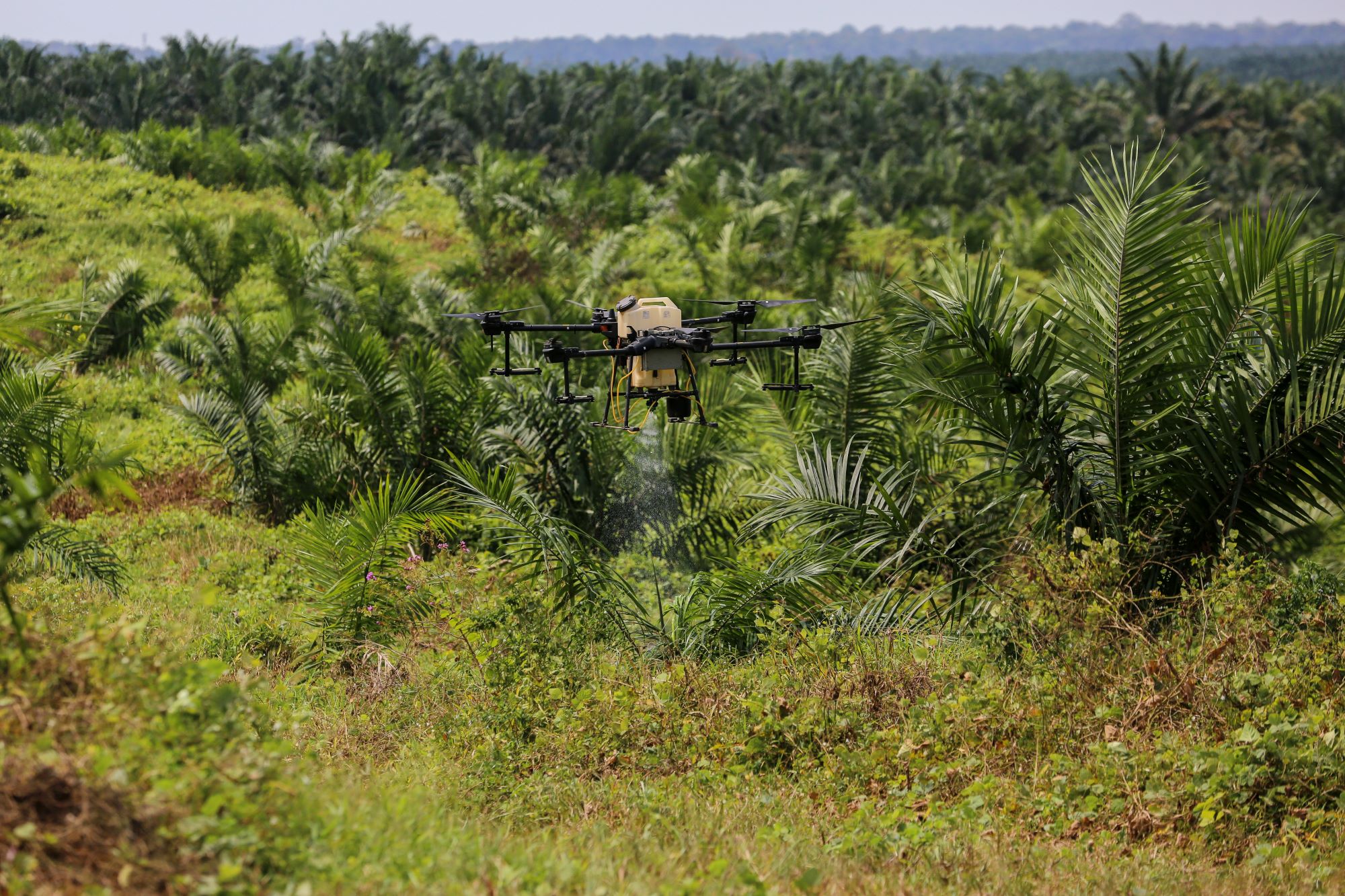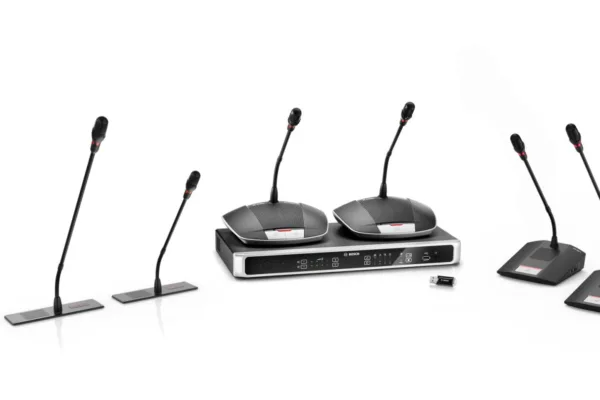Malaysian drone services company uses AWS to deliver insights for organizations in the telecommunications, agriculture, and energy industries while reducing data processing costs by 70%
At AWS re:Invent, Amazon Web Services, Inc. (AWS) today announced that Aerodyne, the world’s No. 1 drone solutions provider, is running its DRONOS software as a service (SaaS) platform on AWS to help drone operators worldwide grow their businesses.
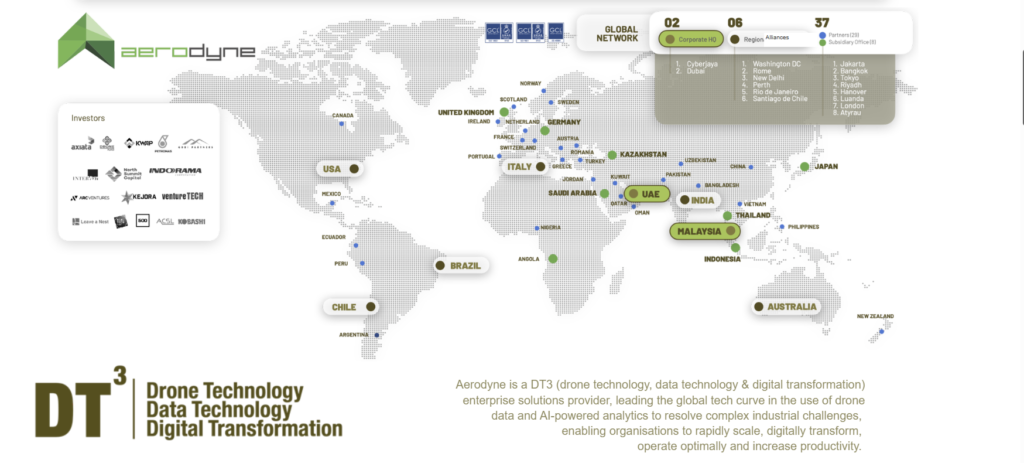
All-in on AWS, the Malaysia-based startup operates drone solutions for telecommunications, agriculture, surveillance, logistics, and energy industries in 45 countries, including partner agencies in China, Vietnam and the Philippines. DRONOS is an innovative, end-to-end drone service platform that allows drone users to onboard, analyze, and make sense of drone data to optimize operations, drive efficiencies, and conduct aerial inspections to keep workers safely on the ground.
To better maintain their infrastructure, power companies and mobile network operators are increasingly using drones to collect operational data from towers and grids. Farmers are also employing similar drone technology in fields to drive precision agriculture.
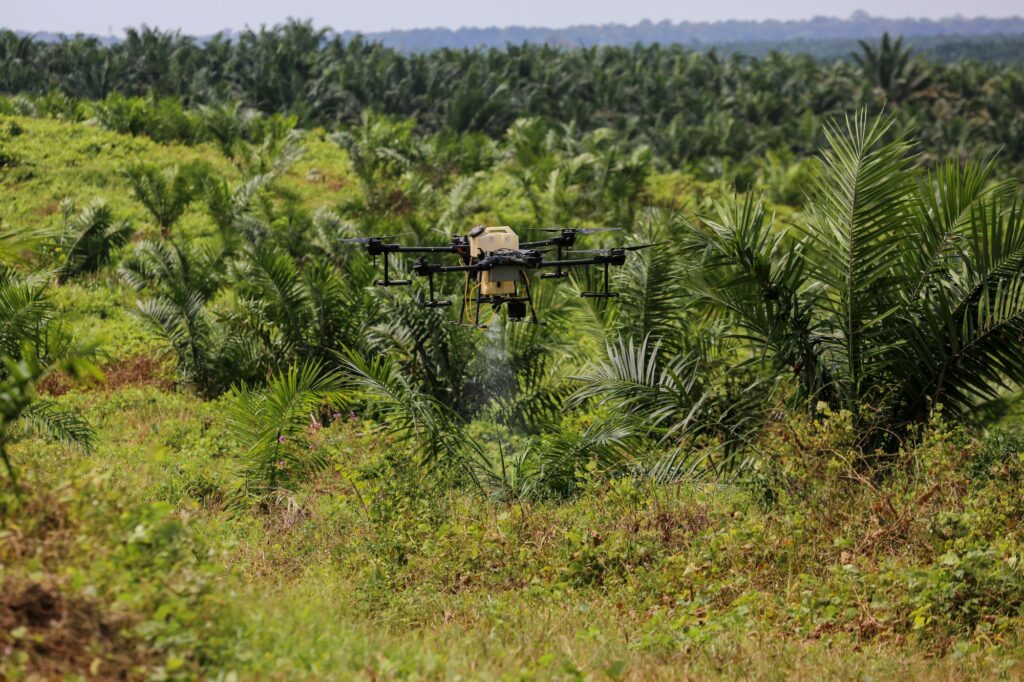
Aerodyne helps the agriculture sector address global food security challenges through precision farming using drones
Aerodyne has created a data lake on AWS using Amazon Simple Storage Service (Amazon S3) to store and turn drone data, including images, satellite, agriculture, and weather data, into actionable insights. Using Amazon SageMaker, a fully managed service to build, train, and deploy machine learning (ML) models, the company automates analysis on mobile phone towers and farm fields.
In the global telecommunications industry, monitoring, managing, and accurately monetizing vast and remotely located infrastructure, such as cell towers and antennae, is critical to ensure continual connectivity.
However, the infrastructure is often difficult to access and complicated to examine manually. Cell tower inspections are historically performed by human riggers, a person who scale towers to manually install and maintain telephone lines and communications systems by climbing hundreds of feet into the air to visually inspect them. Drones automate this process, keeping human riggers safely on the ground and freeing up their time to work on higher-value tasks.
By automating drone data analysis in the cloud, Aerodyne also helps cellular tower operators verify the physical conditions of towers and available space for new antennae, cutting down labor time from two days to three hours.
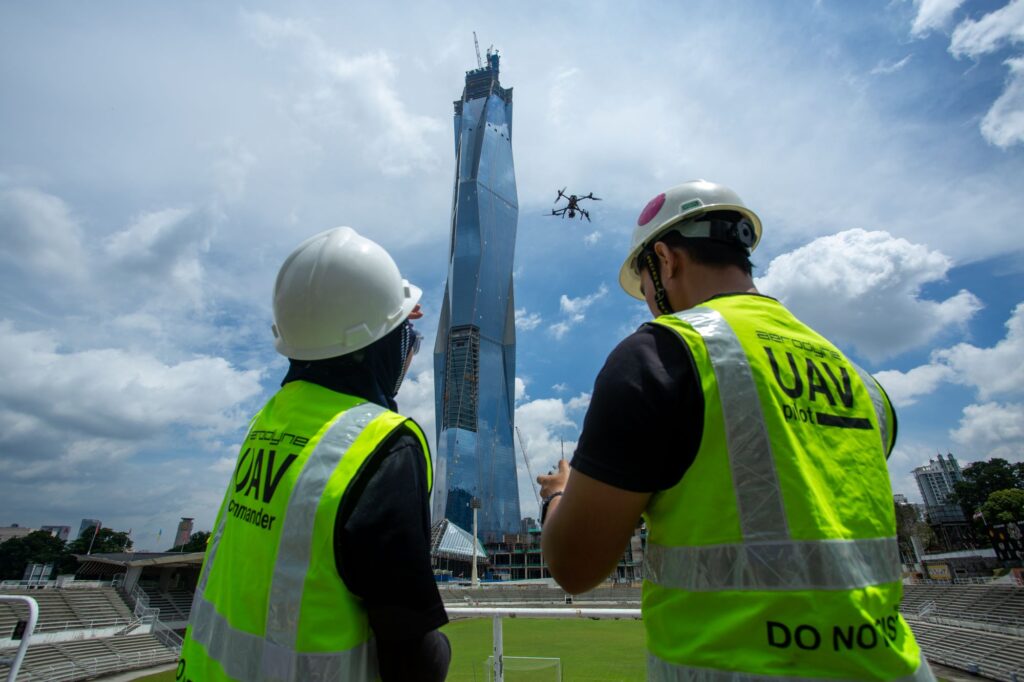
Aerodyne’s drones are transforming cell tower inspections by improving safety for workers
With AWS, the startup has developed solutions like the DRONOS-powered Agrimor platform, which allows farmers and agriculture service providers to use drones for agriculture seeding, spraying, plant analysis, and mapping — increasing crop yields by as much as 67%. Independent farmers to large palm oil plantation companies in Malaysia and Indonesia are using Agrimor to rapidly identify crop issues, like under-irrigation or disease, and deploy fertilizers or pesticides more efficiently, saving resources and ultimately driving food security and farmland profitability. As part of its global expansion, Aerodyne will widen the availability of its Agrimor offering to Brazil, Pakistan, Gambia, and Senegal in the coming years.
The rapidly growing global startup, which has doubled its revenue annually since its inception in 2014, has met the rising demand for new 5G cellular towers by deploying 5G antennae over 90% faster using ML on AWS. Using AWS, Aerodyne has reduced its customers’ cellular tower operational costs by an average of 20% and manual data processing costs by more than 70% compared with on-premises infrastructure.
“Working with AWS has significantly transformed our ability to resolve complex industrial challenges, expand to more countries, and deepen our footprint in the global drone community. Our exponential growth is only made possible by scaling our workloads on AWS to meet rising user demand,” said Kamarul A. Muhamed, founder and group CEO at Aerodyne. “Through the agility of the cloud and the use of machine learning, we can bring valuable data together to help people across agriculture, telecommunications, and energy industries make faster and better decisions about their assets on the ground. We are very proud of our DRONOS solution and what it has already achieved for mobile phone operators and are excited to replicate that success for other sectors.”
Moving forward, Aerodyne plans to experiment with AWS’s generative artificial intelligence (generative AI) capabilities to build a large language model that can help companies better plan drone flights and visualize close to 1 petabyte of drone data. This includes insights from digital twins which are virtual representations of physical infrastructure, like towers, solar farms, or wind turbines that are available today. These digital twins help Aerodyne’s customers centralize the management of physical assets by combining images and environmental data in real-time.
For example, mobile phone operators can use the DRONOS platform to carry out more timely preventive maintenance, using fewer workers under safer conditions, without having to shut down cellular towers and interrupt service. In the energy industry, Aerodyne’s drone SaaS conducts visual and thermal inspections of infrastructure to detect issues like leaks or vegetation intrusion, reducing maintenance costs by 30%.
“Startups around the world rely on AWS to help them cost-effectively and rapidly transform into data-driven companies, and drone services are a prime example of how the latest cloud technologies and generative AI can revolutionize an entire industry,” said Conor McNamara, vice president of ASEAN at AWS.
“Malaysian-born startup Aerodyne is rapidly going global with AWS, delivering its innovative drone service to customers around the world and helping them turn insights from geospatial data into meaningful outcomes. Aerodyne’s DRONOS platform is also helping solve complex issues, like food security, with the transformative power of AI, and we’re excited to support Aerodyne’s next phase of global expansion,” he added.
AWS has a long-term commitment to customers and local communities in Malaysia, pledging to invest more than $6 billion in the country by 2037, with the AWS Region in Malaysia launching in 2024. AWS has trained more than 50,000 Malaysian individuals in cloud skills since 2017. Transitioning to renewable energy is one of the most impactful ways to lower carbon emissions, and in 2022, 90% of the electricity consumed by Amazon was attributable to renewable energy sources.
As the largest corporate purchaser of renewable energy in the world, Amazon has announced more than 400 renewable energy projects worldwide and is on track to powering its operations with 100% renewable energy by 2025. A recent report by 451 Research, part of S&P Global Market Intelligence, showed that moving computing workloads from on-premises data centers to the cloud can improve energy efficiency for companies in the Asia Pacific Region (APAC) and reduce their carbon footprint by more than 78%.




